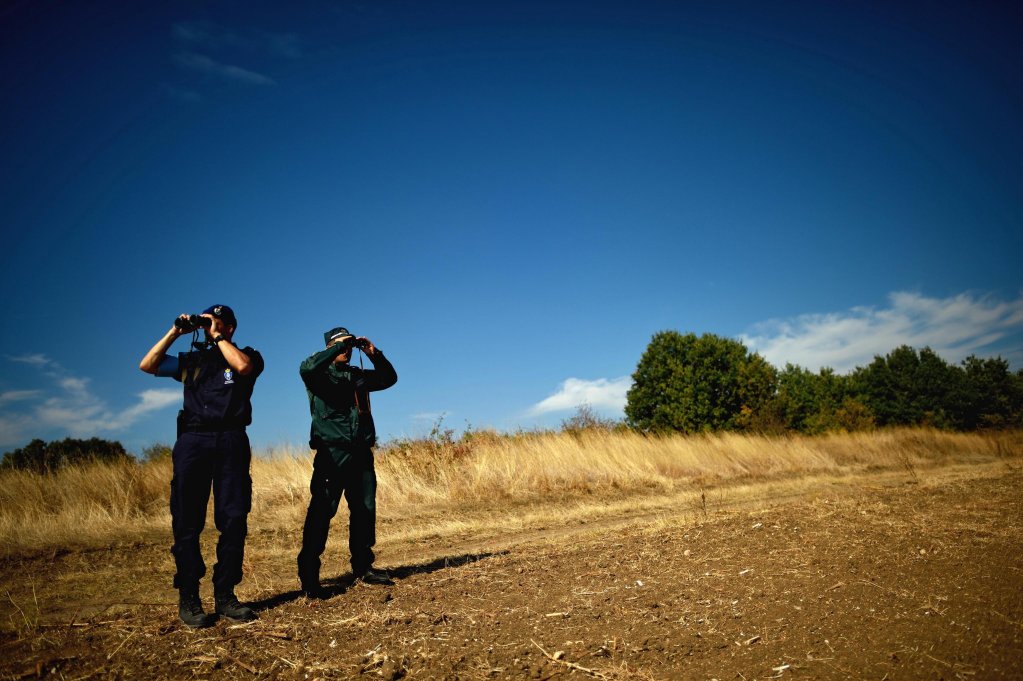The German interior minister has proposed deploying the EU border agency Frontex to the Polish-Belarusian border. Brussels has accused Belarus and Russia of weaponizing migration at the EU's external border, using it as a 'political tool' to pressure the bloc in response to EU sanctions.
German Interior Minister Nancy Faeser has proposed deploying the EU border protection agency Frontex to Poland’s border with Belarus in response to allegations that Belarus and Russia are orchestrating migrant movements toward the European Union’s external border.
Poland is "making an important contribution to increasing security and reducing irregular migration to Europe here on the external border of the European Union," Faeser said during her visit to Poland on Wednesday (October 29) at the invitation of her Polish counterpart Tomasz Siemoniak.
The EU's asylum system should also enhance the protection of the bloc's external borders, Faeser said during a visit near the border. "That's why I can imagine Frontex providing support here, too, where a large number of German police officers would be involved."
Referring to Poland, Faeser added: "I assume that our neighboring country will abide by international and European law, just as we do."
Read AlsoPoland plans to temporarily suspend asylum 'within weeks'
New EU returns directive aims to strengthen asylum system
Alongside reforms to the Common European Asylum System, the EU is also set to adopt a new return directive, hoping to achieve more efficient handling of irregular migration and streamlined migrant deportation procedures.
"Those who do not have the right to stay in the EU must return so that we can protect those who truly need asylum from war and terror," Faeser said. She stressed the need for allowing return decisions by any EU country to be enforced uniformly across the bloc. "This is a crucial step toward effectively reducing irregular migration," she added.
Read AlsoPoland plans to temporarily suspend asylum 'within weeks'

Germany-Poland authorities must collaborate to dismantle smuggling, Faeser
Since mid-September, Germany's Federal Police have intensified border checks across all entry points, a measure that was also an important topic during Faeser's visit to Poland. The interior minister emphasized the shared commitment between Germany and Poland to prevent irregular migration, dismantle smuggling networks, and target criminal activities.
"Together, we aim to stem irregular migration, halt human smuggling, crack down on criminal networks, and identify potential Islamist threats early on," she stated. "Our efforts are closely coordinated with neighboring countries, uniting us in shared action."
Faeser highlighted the strong police cooperation between Germany and Poland as a model for the EU, calling it "one of the most extensive and effective partnerships of its kind." She pointed to initiatives like the Joint Center for Police and Customs Cooperation, three joint offices, and joint patrols as "best practice" examples to also inspire other EU countries.
Read AlsoLukashenko refuses to block migrants at Belarus-EU border, pushing Poland to seek China's help
Poland's migration response
Polish Prime Minister Donald Tusk had declared that Poland plans to temporarily suspend the right to asylum for migrants who cross the border with Belarus irregularly. Faeser noted that no new legislation is currently in place, as any changes must first be approved by the Polish parliament.
Poland has bolstered much of its border with a 5.5-meter-high fence equipped with electronic surveillance. Despite these measures, however, attempts to cross the border continue daily, with Polish border guards having reported 201 irregular crossing incidents over three days in August alone. Meanwhile, Germany’s federal police recorded 3,117 irregular entries via the Belarus route in the first half of 2024, according to figures from the German news agency dpa. In 2022, a total of 11,932 people entered through this route.
Polish Interior Minister Siemoniak emphasized that Poland is primarily relying on the EU's financial support to enhance border security. Like Faeser, he also noted the importance of cooperation between border guards and police in Germany and Poland in the fight against human smuggling.
Read AlsoPoland cites Finnish example while elaborating its new migration strategy
